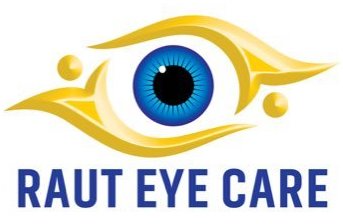Blogs for Ophthalmology
List of articles for Ophthalmology

Diabetic Retinopathy
It is microvascular changes that occur in one's retina over a period of time during which his/her sugar control is not upto the mark. How do you know if you have diabetic retinopathy(DR), well answer to that question is simple, just have to see a ophthalmologist, a retina specialist to be more specific. What should I expect during my retina consult? In case you are found to have no evidence of DR you will be asked to review at least once a year for routine retina check up. The disease has its staging and the retina specialist is the one who is experienced enough to stage the disease accurately and call for follow-up at intervals according to the stage of your DR as per global guidelines. What if I have blurring of vision in DR? If your vision is blurred due to DR diagnosed by a retina specialist then there could be 3 reasons 1. Due to Diabetic macular edema, which can be treated with a wide range of treatment option like laser, intravitreal injections or simply by instilling drops. Now the duration and frequency of treatment has to be tailored for each individual for which again the retina specialist with his experience plans. However recurrence of this edema do occur vastly because of poor control of diabetes. 2. Due to vitreous hemorrhage, tractional retinal detachments or combined detachments, in this cases retina surgery is what is recommended by retina surgeons. Again the outcome depends on control of diabetes and pre-existing state of your retina. 3. Retina itself has become ischemic with permanent degenerative changes which are irreversible can also lead to vision loss. So as you can understand that the disease is Progressive one either slow or fast depends greatly on your Diabetic control and treatment becomes more and more complicated and expensive with minimal scope of improvement. Hence regular timely follow-ups with your retina specialist is what is recommended.

What is keratoconus ?
Exact causes of keartoconus are unknown but according to research most of the keratoconus cases are hereditary Age: Usually starts after puberty. In some cases keratoconus can start before puberty also. Less common in people older than 40 years of age Systemic disorders : Keratoconus can be associated with certain disorders such as Down syndrome, Ehlers-Danlos syndrome, osteogenesis imperfecta, and retinitis pigmentosa. Inflammation: Inflammation from things like allergies, asthma, or atopic eye disease can break down the tissue of the cornea. Eye rubbing: Rubbing your eyes hard over time can break down the cornea. It can also make keratoconus progress faster if you already have it.

Contoura Vision Pune - Best lasik in pune
Contoura® Vision is a type of bladeless LASIK procedure that ensures your recovery period is optimised and post-op symptoms are minimised. It is a laser vision correction system. When you choose a Contoura® Vision procedure, you’re choosing a laser eye surgery that’s calibrated at the highest level of accuracy and personalization. At our hospital we perform contoura vision lasik surgery in Pune for all eligible patients.

Lasik surgery meaning
In the quest for perfect vision, LASIK (Laser-Assisted In Situ Keratomileusis) has emerged as a transformative solution for millions of people worldwide. This groundbreaking surgical procedure has revolutionized the field of ophthalmology, allowing individuals with nearsightedness, farsightedness, and astigmatism to bid farewell to corrective lenses and experience the world with newfound clarity. But what exactly is LASIK, and what does it mean for those who undergo this life-changing procedure?
At its core, LASIK is a refractive surgery technique that reshapes the cornea, the transparent front part of the eye, to correct refractive errors. These errors occur when the shape of the cornea or the length of the eyeball causes light to focus improperly on the retina, resulting in blurry vision. By precisely reshaping the cornea using an excimer laser, LASIK allows light to properly focus on the retina, thus improving vision.
The process of LASIK begins with a comprehensive eye examination by a qualified ophthalmologist or optometrist. This examination determines the eligibility of the patient for the procedure and helps the surgeon develop a personalized treatment plan. Factors such as corneal thickness, refractive errors, and overall eye health are taken into account during this evaluation.
Once a patient is deemed suitable for LASIK, the surgery is typically performed in an outpatient setting and takes only a few minutes per eye. Local anesthesia is administered to numb the eye, ensuring a painless experience for the patient. The surgeon then creates a thin flap in the cornea, either using a microkeratome (a mechanical blade) or a femtosecond laser. This flap is carefully lifted, exposing the underlying corneal tissue.
Using an excimer laser, the surgeon reshapes the cornea by removing microscopic amounts of tissue. The excimer laser employs a cool ultraviolet beam of light that precisely sculpts the cornea, guided by a detailed map of the patient's eye measurements. This step is crucial as it corrects the specific refractive error unique to each individual.
Once the cornea is reshaped, the surgeon repositions the corneal flap, which adheres naturally without the need for sutures. The cornea begins to heal immediately, and the flap serves as a natural bandage, minimizing discomfort and aiding in the rapid recovery of the patient. Typically, the eyes are shielded with protective goggles to prevent accidental rubbing or irritation during the initial healing phase.
One of the remarkable aspects of LASIK is the speed at which vision improvement occurs. Most patients experience improved vision within 24 to 48 hours after the procedure. However, complete stabilization of vision may take a few weeks. It is important to follow the post-operative care instructions provided by the surgeon, which may include using prescribed eye drops, avoiding strenuous activities, and attending follow-up appointments to monitor progress.
The meaning of LASIK extends far beyond its technical aspects. For those who have lived with the inconvenience of glasses or contact lenses, LASIK offers newfound freedom and convenience. Activities like swimming, exercising, or even waking up in the morning become easier without the dependence on corrective eyewear. The psychological impact of improved vision should not be overlooked either, as LASIK can boost self-confidence and enhance overall quality of life.
It is crucial to note that while LASIK is a safe and effective procedure for the majority of individuals, not everyone may be a suitable candidate. Factors such as severe dry eye, thin corneas, and certain eye diseases may disqualify someone from undergoing LASIK. A thorough consultation with a qualified eye care professional is essential to determine individual eligibility.
In conclusion, LASIK surgery in pune has transformed the lives of countless individuals in pune by correcting refractive errors
CONTOURA LASIK SURGERY IN PUNE

Why do my eyes water in the mornings?
Watery eyes in the mornings can have various causes : - Abrupt changes in ambient light can lead to tear production. - Environmental irritants such as cold wind, bright lights, smoke, dust, chemicals, insect or mosquito repellants in the form of aerosol sprays, vaporisers etc. - Yet another cause is allergic rhinitis with associated sneezing, runny nose along with watery eyes due to something in the bedroom environment [dust, dust mites, cold and animal dander]

Which IOL should I choose for my cataract surgery?
Cataract is a condition in which the clear and transparent natural lens located inside the eye becomes cloudy or opaque. At the time of cataract surgery this cloudy natural lens is removed and replaced with an artificial IntraOcular Lens or IOL. Cataract surgery not only improves the vision but also opens up the possibility of reducing dependency on glasses. There are various types of IOLs available with different properties. There are 2 basic types if IOLs : Monofocal Premium

Is retina laser painful?
Yes Retina laser can be painful at times but not always. Since there are different types of lasers required to treat different retinal conditions.
Usually the level of pain depends on the grade of burn and the location of the lesion lasered. The grade of burn is decided by the treating doctor to acheive complete treatment. Barrage lasers tend to be more painful compared to laser for diabetic retinopathy as the area treated in barrage laser is usually the peripheral retina which is thinner than the rest of retina. Some lasers like focal/grid are absolutely pain free.
Usually the pain if there is any lasts during or few minutes after the procedure and is easily treatable with simple eye drops and if required pain killer tablets will be prescribed by the treating physician. Sometimes you might be advised to take pain killers before the procedure if pain is anticipated during the procedure by the treating doctor.
Now the cost of any retina laser depends on the number of sitting required and is again decided by the treating physician. Usually it ranges from 1 to 3 sittings.
The per sitting cost of retina laser ranges from 4000 rs to 6000 rs depending on the type of laser. For barrage laser the cost is around 5800rs and for diabetic laser cost is 5500 per sitting per eye. For a focal laser the cost is 4000rs.

Can watering from my eyes affect my eyesight?
Watering from the eyes can be a troublesome problem often needing one to keep wiping the eyes . Tears are needed to keep the front surface of the eye healthy and maintain clear vision. However when the eyes are watery and filled with tears the eyesight may get temporarily blurred until the tears are wiped away or flow out. Watering from the eyes by itself does not cause persistent decrease in vision. However watering may be a symptom of other eye diseases which may affect the eyesight.

Why do I get styes ?
There are a number of tiny glands in the eyelids which open through ducts onto the lid margins near the base of the eyelashes. An obstruction of the ducts of any of these glands prevents the secretions of the glands from coming out. The secretions then accumulate and the gland may get inflamed. A stye is a small red painful boil that occurs in the eyelid at the base of an eyelash. It occurs due to an acute infection within the glands at the eyelid. It is also called external hordeolum. Multiple styes may be present and occasionally it may involve the entire lid margin.



